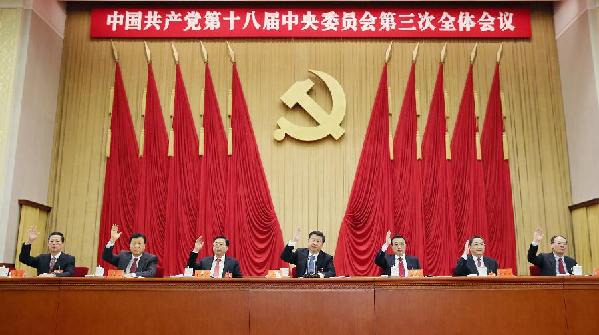After the vague Communique released after the conclusion of the Third Plenary Session of the 18th Communist Party of China Central Committee, last Friday brought the full Decisions document and a personal note from Party Secretary Xi Jinping explaining the rationale for the Party's various decisions. The two documents lay out the biggest package of economic reforms since the early 1990s - and deliver a clear sense that the leadership is fully committed to their implementation. The Decisions document addresses a wide range of issues and is infused with many progressive ideas. Seeing them all in one document, backed by a clear sense of urgency, is heartening. Moreover, the half-personal, half-official document from Xi Jinping sends a clear message - he stands behind these reforms. Given his authority in the system as Party General Secretary, this increases the likelihood of meaningful implementation.
In his explanatory note to the Plenum document, Xi claims a clear lineage back to former leader Deng Xiaoping's 1992 reforms. This package is just the next step in the same direction. Market reforms and opening-up have been enormously successful, he says, but there are still some big problems: uneven development, uncoordinated policy, unsustainable growth, rising inequality and rising social contradictions. This diagnosis of the economy's ailments is almost exactly the same as that of the former leaders.
 |
|
Top Chinese leaders Xi Jinping (C), Li Keqiang (3rd R), Zhang Dejiang (3th L), Yu Zhengsheng (2nd R), Liu Yunshan (2nd L), Wang Qishan (1st R), Zhang Gaoli (1st L) attend the third Plenary Session of the 18th CPC Central Committee in Beijing, capital of China, Nov 2, 2013. The session lasted from Nov 9 to 12. [Photo/Xinhua] |
Listing this issue first, Xi writes that over the last 35 years, the Party has been searching for the right relationship between the government and the market. In 1992, the Party decided that the market was "basic", but it has now determined that conditions are ripe for the market to be "decisive". This might sound like linguistic jujitsu, but it is explained in Xi's next sentence: "Theory and practice prove that the market is the most efficient way to allocate resources."
The ramifications of this statement could and should run very wide: the market should set most prices (utility pricing is the obvious place to start), State subsidies should be limited (since they distort the normal price mechanism), private property should be respected, entry barriers to sectors should be lowered, capital controls should be loosened, and State intervention in business should be reduced. Much of this spirit runs through the document - and in the coming debates, it could act as the North Star guiding policy details.